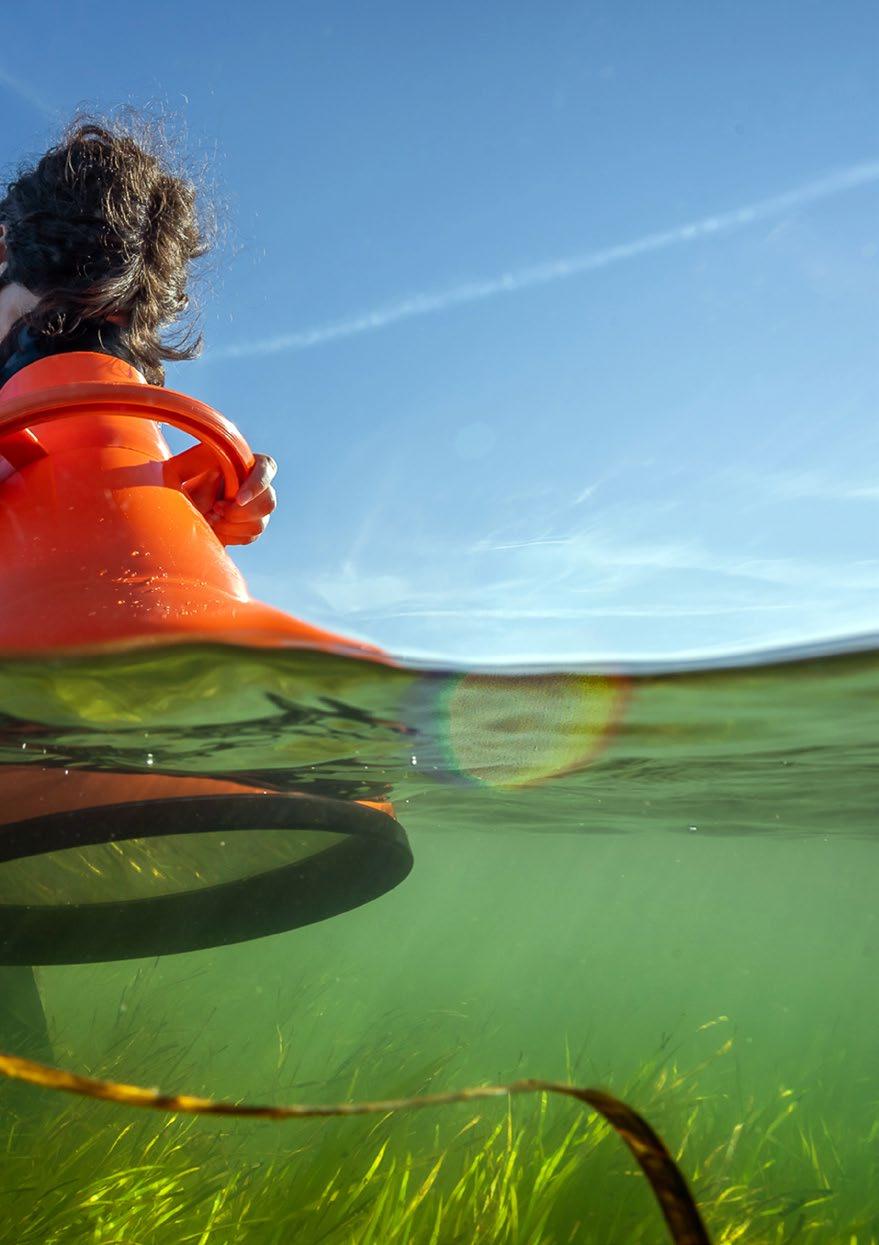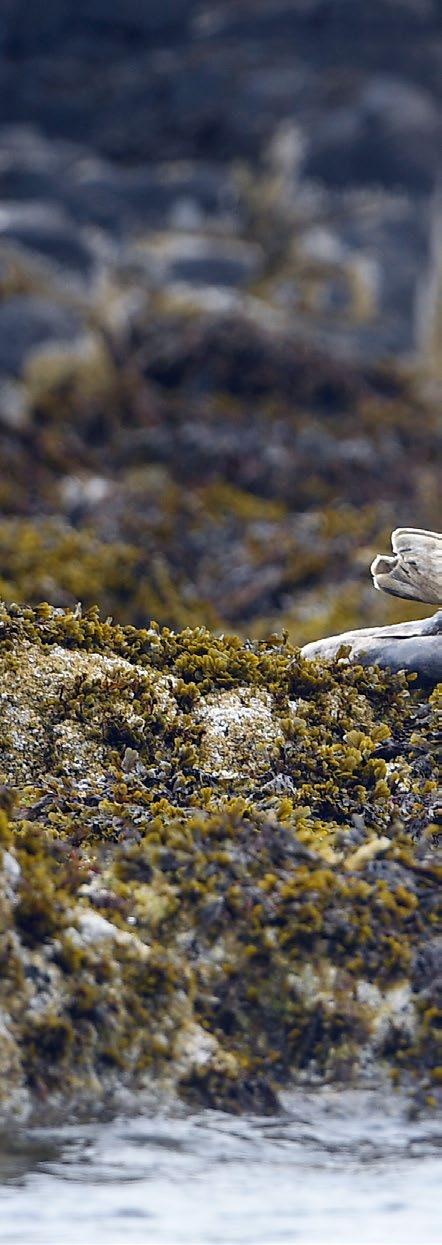IMPACT REPORT





Highly Pathogenic Avian Influenza (HPAI) has cast a significant shadow over what should have been the busy breeding season for Scotland’s seabird colonies this year.
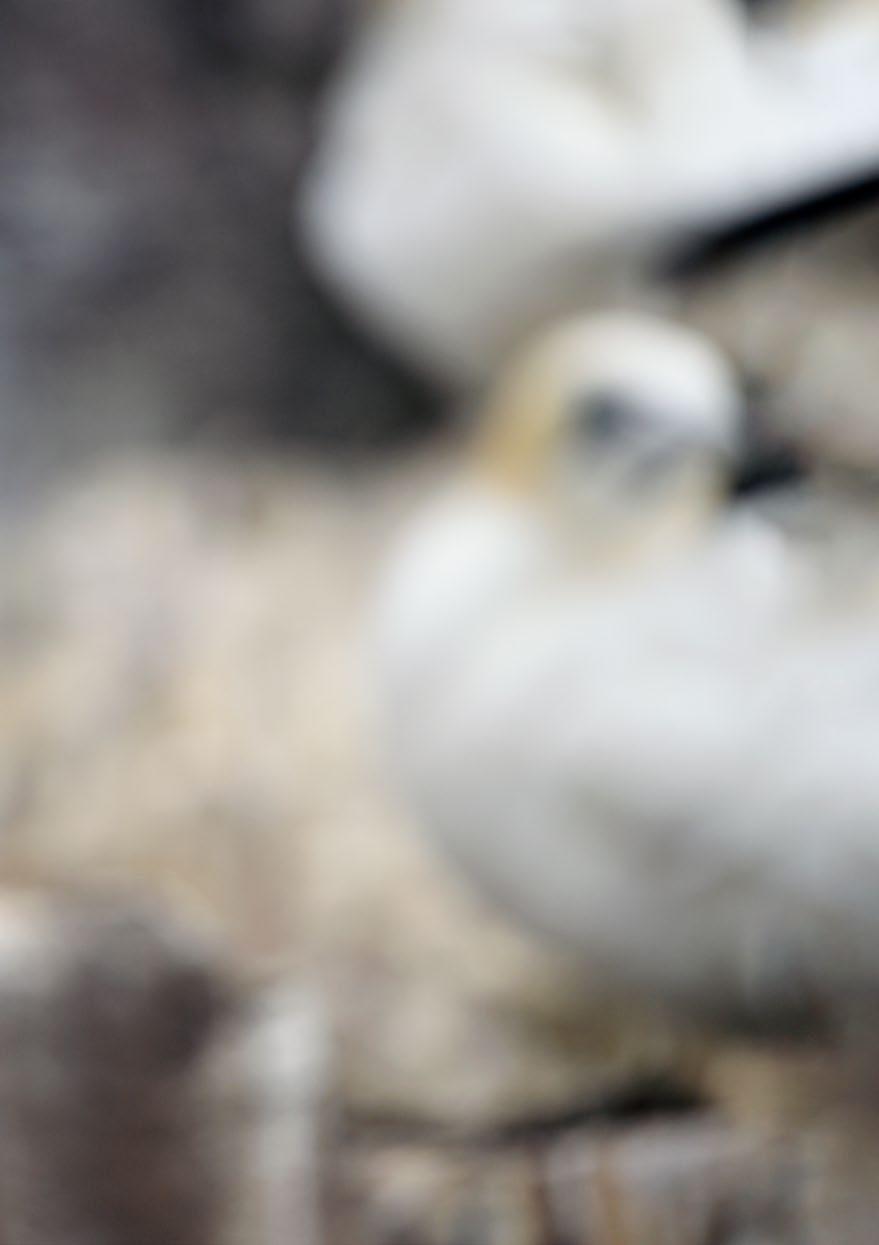
The speed and devastation of HPAI shows just how vulnerable seabird colonies are, especially when these species are already facing the wider environmental pressures of invasive species, marine pollution, overfishing and the climate crisis.
Although a full assessment of the population-level scale of HPAI’s impact has not yet been confirmed, evidence gathered to date indicates a significant reduction in numbers. HPAI has been a particular blow for the Bass Rock –the world’s largest colony of Northern gannets. The role of conservation and governmental organisations now is to work closely together so we can research the effects of HPAI on our seabird colonies, monitor their recovery and better understand virus pathways and resistance.
While the impacts of HPAI are likely to be felt for some years, there is positive news on the horizon, including the Biodiversity Convention of the Parties (COP) 15, hosted in Montreal in December 2022. We are especially keen to nurture and support the positive examples of youth activism that surrounded Climate COP26, engaging and inspiring the next
generation of science communicators and conservationists. At the time of writing all eyes are on the world leaders in Sharm el-Sheikh as they meet for COP 27; our hope is for a Global Framework for Biodiversity and real action, rather than simply words.
Our role is to inspire and educate people about the Scottish marine environment, to motivate them to care for it and support conservation efforts.
Our vision is to help ensure that Scotland’s marine environment is healthy, wildlife-rich, valued and enjoyed by all.
Our work to support our vision is structured around four key pillars –Conservation, Education, Community and Experience.
This report shares details of our achievements from February to July 2022 and our contribution to national and international marine conservation goals.
Although Scottish attractions continue to record fewer visitors than preCovid, we were delighted to welcome increasing numbers to engage with our Centre over the last six months and hope to return to previous levels in due course.
As part of our efforts to achieve this, and to provide year-round interest, we are growing our programme of events, especially focusing on the shoulder season. Seabird Socials, MarineFest and our STEM learning contributions are just some examples. By including arts, crafts, food and drink, music and entertainment, we aim to attract those who are unfamiliar with the marine environment and inspire them to Dive In and explore.
We will continue to provide a blended model, providing both in person and digital learning and engagement opportunities, recognising that there are still many who do not feel comfortable with group social spaces, or who face difficulties when accessing our activities. These hybrid offerings form part of our ongoing commitment to lifelong learning and active ageing: mental health and wellbeing: and addressing the continuing inequalities of our society.
We were delighted to secure funding to progress targeted work with specific audiences through the autumn and winter months, including developing our Citizen Science Hub for 16-24 year olds. We are also providing wellbeing sessions with Venture Trust, who provide person-centred support and experiential outdoor learning for individuals who are furthest from opportunity, helping them gain the life skills, stability and confidence needed to reach their potential.
Our continuing partnerships with Care Homes and Dementia Friendly East Lothian enable older people to spend time in nature, building social capital and confidence.
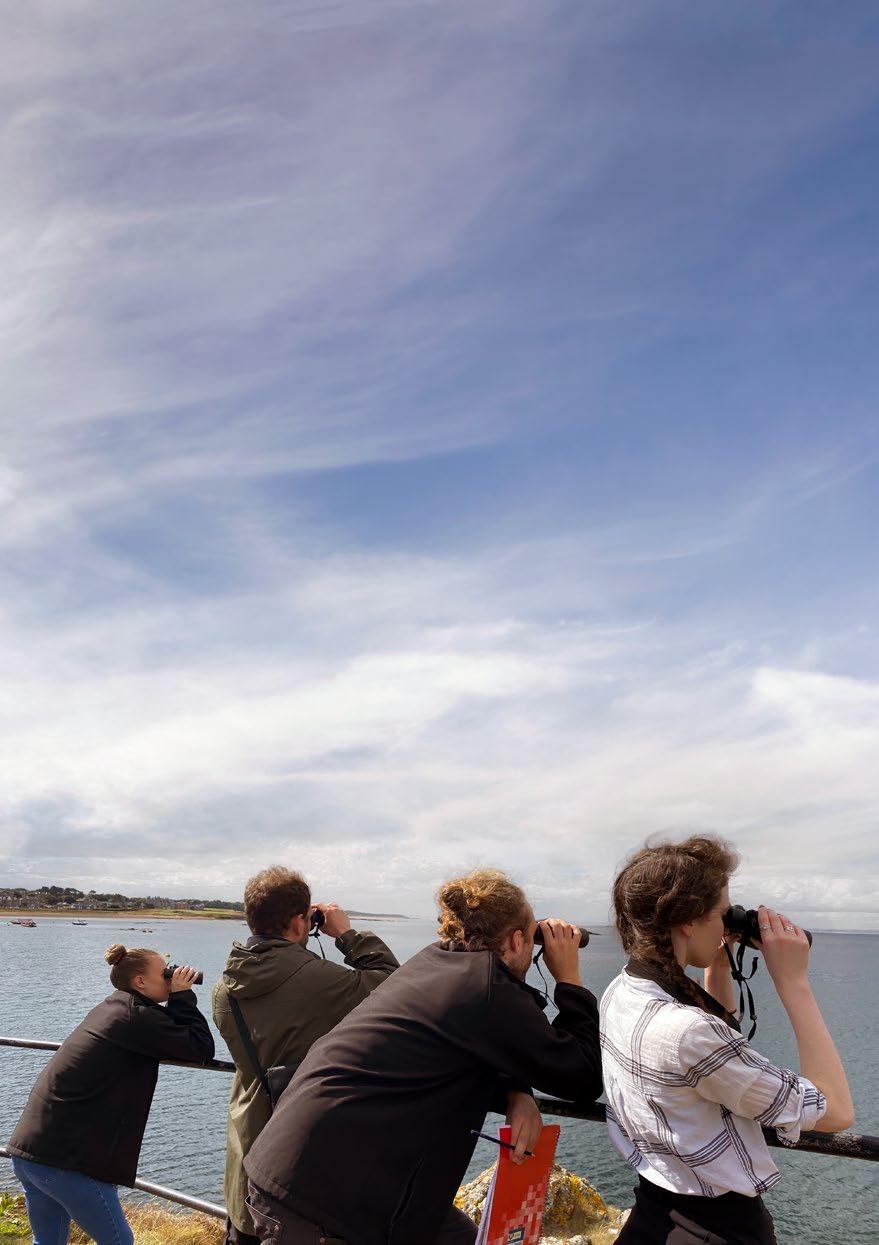
Although some protection exists for Scotland’s marine environment, actions do not go far enough in tackling the many threats to our fragile marine ecosystems and wildlife. 37% of Scotland’s seas are currently in Marine Protected Areas (MPAS); however many are not fully protected from damaging activities. For example, just 2.5% of MPAs are protected from bottom towed fishing gear.
Scottish Environment LINK’s Marine Group 2022 opinion poll revealed that the majority of Scots believe current wildlife protection measures are too weak:
• Only around half of respondents felt that Scotland’s seas are in good condition
• 46% stated that the quality of Scotland’s seas have worsened in the last 10 years
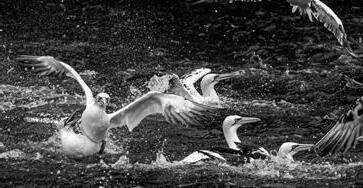

• Pollution, the effects of climate change and industrial fishing were cited as the greatest perceived threat to our seas
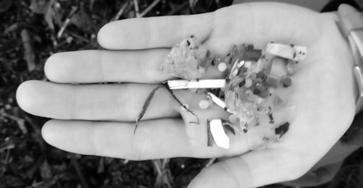
Our goal is to ensure marine habitats and wildlife are adequately protected, restored and resilient to these pressures.
To support this we are developing, demonstrating and promoting models of conservation best practice and citizen science. From February to July 2022 these have included:
“It was a fantastic day, and we felt very fortunate to have the opportunity, and left feeling like we had made a difference collecting the litter on the island. Your passion for your job came across so clearly, as did your extensive knowledge of the local wildlife and ecosystem. I certainly feel I learned many new things and have been motivated to try to find other similar conservation volunteering opportunities. Your leadership and communication with the group was also spot on and it meant everyone felt very involved and worked as a team.”
Volunteer, Marine litter clear up, Craigleith island
“I booked on their Wildlife Walk along the beach, with conservation officer Emily. It was fantastic! Her knowledge seemed boundless. It felt like going on a walk with Chris Packham and Megan McCubbin from Springwatch. We were also provided with some excellent binoculars to use.”
Wildlife Tour attendee
“The Marine Citizen Science Toolkit experience is both interesting and inspiring. Emily was very knowledgeable and passionate about coastal birds and the marine environment in general. Well worth the trip to North Berwick (which is an easy trip from Edinburgh by train).”
Marine Citizen Science Toolkit attendee
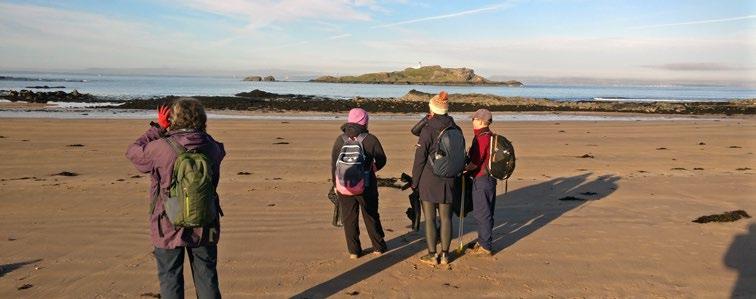
Scottish schools, children and families continued to face significant challenges resulting from Covid measures, interrupted learning and the patterns of illness and absence. Pupils who were already vulnerable become even more so.
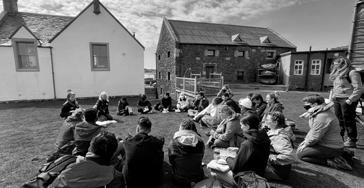
Douglas Hutchison, Glasgow’s Education Director and President of the Education Directors’ Body ADES, in reference to the Achievement of the Curriculum for Excellence Levels (ACEL), notes that the youngest and most deprived pupils’ literacy and numeracy suffered most owing to the pandemic.
“It seemed to me it was the youngest and most deprived children who had suffered most when you looked at that data. Children with complex additional support needs struggled, and probably their families struggled when schools were closed, which is a significant part of that young person’s life and that family’s life.”
TES 2022 – 4 key challenges
Scottish schools are facing
Our goal is to ensure everyone has an opportunity to engage with the Scottish marine environment and has access to informative educational resources. To support this we deliver marine education programmes, science resources and events that are relevant to national education frameworks.
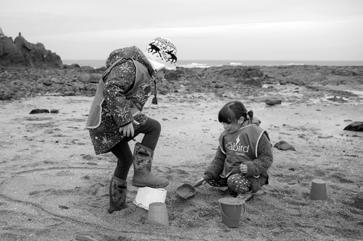
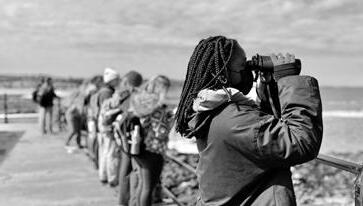
“Everyone at Black Mount School would like to thank you for the amazing trip. We loved being by the seaside and learning new things.

Eva said ‘My favourite was definitely the boat trip. It was awesome!’
Hamzzah said ‘I caught 8 crabs!’ (Note – rock pooling, they were put back in.)
Abi said ‘my favourite was making the rice seal.’
Zander said ‘my favourite was definitely going to the beach.’”
Feedback from Black Mount School
“Dear Fran and all your team, Thank you for providing us with such an amazing day of learning and fun.”
Compass School
‘My primary four class recently visited the Seabird Centre. I writing to thank you for a wonderful trip. It was an excellent experience for everyone. I have enclosed some letters from the children.’ (Teacher)
‘Thank you for the most wonderful trip I had the most wonderful time.’ Hannah ‘We all enjoyed the rockpool everyone said that it was their favourite it was so good. Thank you for the introduction … I never knew that feathers were water repellent.’ Joshua
‘I found lots of crabs and some snails and I had a great time.’ ‘Puffins are very interesting creatures you can be an expert and still learn more which I love. Thank you.’
Burnbrae Primary School
The Scottish Government’s 2022 survey indicates there is still a need to improve community connectedness and social cohesion in neighbourhoods, with people in more deprived areas still lacking places where they can meet and socialise:
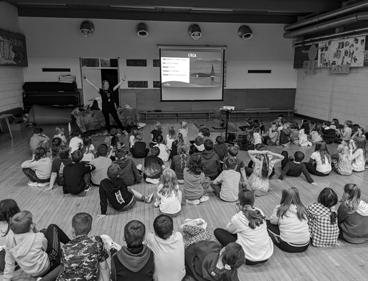
• Most agree that there are places they can socialise in their neighbourhood –although 3 in 10 disagree
• Those in more deprived areas are less likely to agree that there are places in their neighbourhood where people can meet up and socialise (55% of those in the most deprived areas, compared with 72% in the least deprived)
Nature has a key role to play in improving wellbeing and social cohesion, providing green and blue spaces to engage in group activities that improve the environment and build community pride.
Our goal is to ensure that people, through having a positive engagement with our work, are motivated to help conserve Scotland’s seabirds and marine environment.
We do this by working in partnership with local groups and the scientific community to provide resources and activities that enable people to enjoy, increase understanding of and contribute towards practical conservation projects.
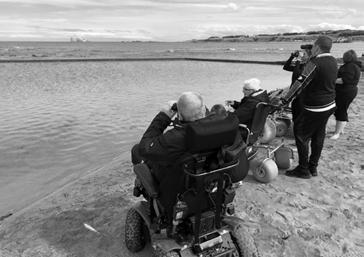
“Great! Thanks for a fun event”
“Thank you – you made the activities fun and were very informative”
“Really enjoyable afternoon. Charlotte was really well informed and held everyone’s attention really well.”
“Lovely laid back happy presenting / leadership. Good pace.”
“Really good fun. Good length and interesting.”
“Thank you – we loved it. Good mix of facts with games.”
Edinburgh Science Festival
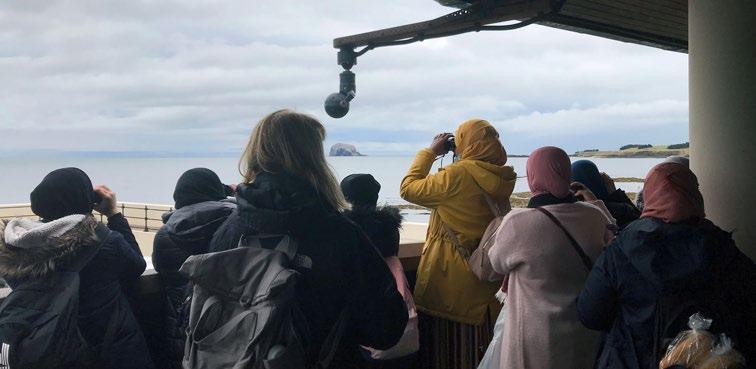
“Plenty of information given throughout the talk, in a way that was understandable to people whether just getting interested in the marine environment or with a bit more experience. Just a big thank you to everyone involved for arranging and providing such interesting insights into for us. Thank you for an interesting and informative talk and for encouraging inputs from the audience e.g. sharing resources
Very enjoyable evening, I am very happy that these talks are available online as I am too far away to attend in person.”
Care Provider - partner
Through our 5-star visitor experience, wildlife adventure tourism, and digital technology, we provide a year-round immersive experience that gives people the opportunity to dive in and explore Scotland’s marine environment.
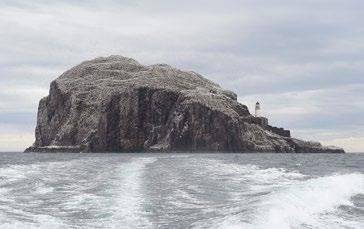
Our goal is to develop our position as a recognised national marine education and tourism experience that helps people make informed choices about the marine environment.
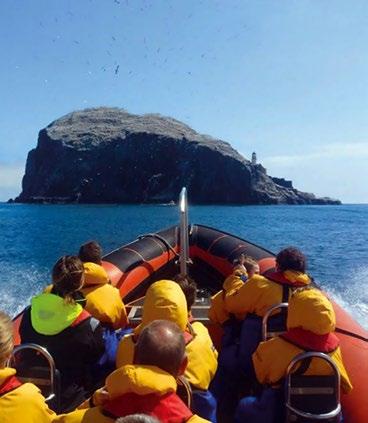
Dedicated funding has enabled us to review and refresh our yearround offering, including events that introduce new audiences to our Centre: new topics for our animations:
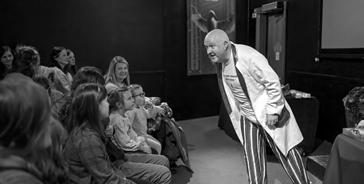
upgrading our Virtual Reality underwater experience.
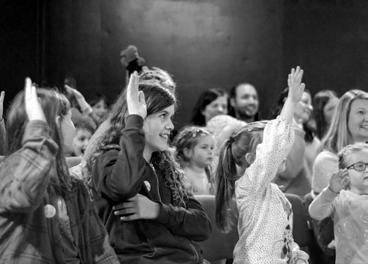
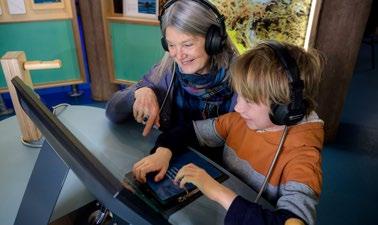

“Fun and vibrant. My young children are certainly excited about seagrass now! They have already asked to go to the beach to look at all the plant life there and have asked about planting more seed in our garden at home.”
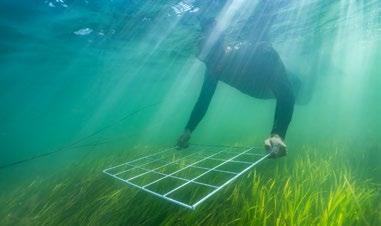
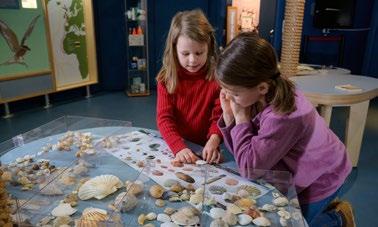
“Event speaker made the topic extremely approachable, understandable and fun for an audience with an age from 4 to 60. That was great!! Broke down complex topics like DNA need for oxygen etc. in very accessible bits and pieces. That was awesome!”
“The presenter signed through the hour long presentation - was fantastic and much appreciated. Prof. Egghead was really engaging and such fun, interesting presenter. Both kids loved it.”
“Included all the children and kept them attentive and hopefully learned about CO2, thank you.”
Thank you to all those who have made our work possible
We are grateful to all the loyal supporters, companies, Trusts and foundations who make our work possible. Our particular thanks in this edition go to those who have supported us from January to August 2022, including:
Many more generous individuals have supported us financially, as well as through their time, expertise and gifts in kind. While it is not possible to list the many generous individuals who have given, we are extremely grateful.
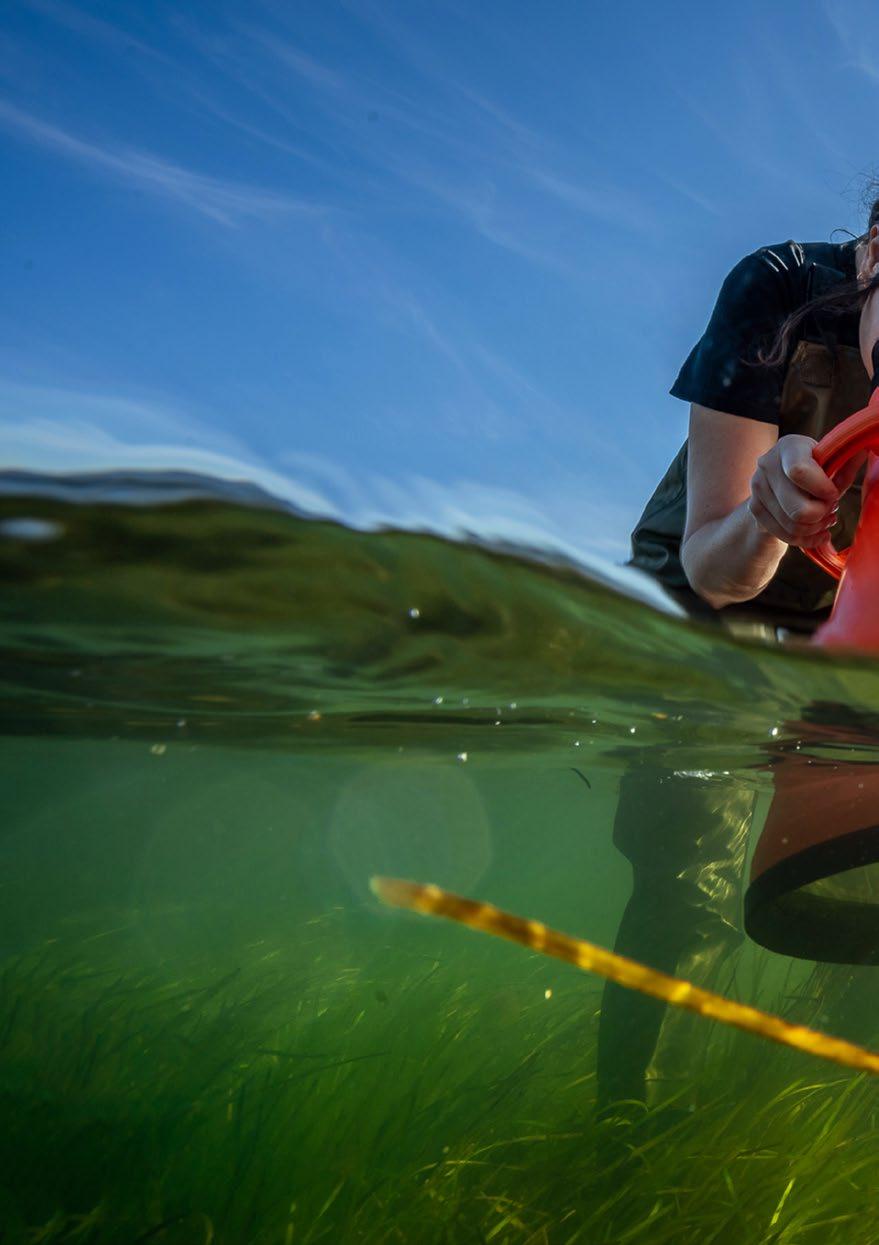
‘Thank you for welcoming the William Grant Foundation Natural and Built Environment Group for an engaging, informative and fun away day. We really benefit from the opportunity to connect directly with our funded partners, there is so much more learning to be gained when we get the opportunity to do this. It also helps connect more of the Foundation members with the causes and issues we are supporting. We enjoyed learning about the journey and trajectory of the Scottish Seabird Centre – having the chance to dig into this with you in person was useful - it enabled us to better understand the challenges and opportunities for the organisation, including the funding; having this open dialogue with those we support is valuable. The activity on the beach was a great demo of the engagement work you do – I think there may now also be some obsessive nurdle hunters as a result!’
Elaine Gibb, William Grant Foundation, Team Away Day
